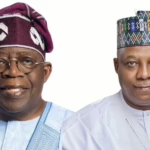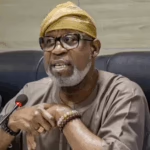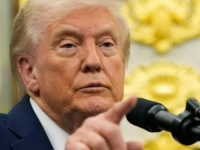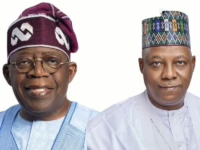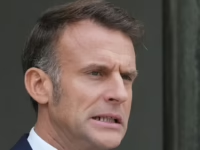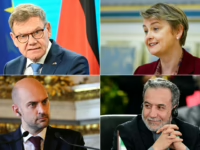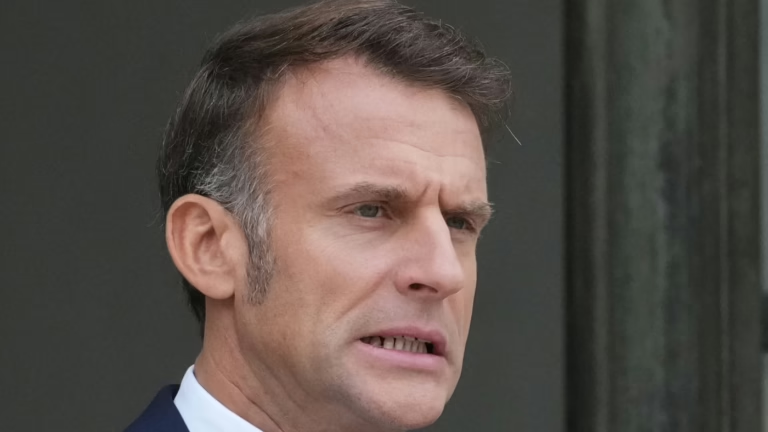French President Emmanuel Macron, pictured in Paris while awaiting Jordan’s Crown Prince Hussein, has reinstated Sebastien Lecornu as prime minister following his recent resignation, tasking him once again with forming a government.
Michel Euler/AP
hide caption
toggle caption
Michel Euler/AP
PARIS – In a surprising political move, French President Emmanuel Macron reinstated Sebastien Lecornu as prime minister on Friday, mere days after Lecornu stepped down. Macron has charged him with the critical task of assembling a government and drafting a budget to break the ongoing political stalemate gripping France.
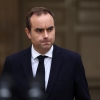
Lecornu’s return follows intense negotiations after his abrupt resignation less than a week ago, which came amid internal disputes within his newly formed cabinet. France is currently grappling with escalating economic difficulties and soaring national debt, and the political impasse is exacerbating these issues, causing concern throughout the European Union.
This decision is widely interpreted as Macron’s final effort to revitalize his presidency, which extends through 2027. Without a clear majority in the National Assembly to advance his policies, Macron faces increasing opposition, including dissent from his own political allies, leaving him with limited options.
Macron’s office issued a brief statement late Friday confirming Lecornu’s reappointment, echoing the concise announcement made a month earlier when Lecornu was first appointed, and coming just days after his resignation.

In a social media post, Lecornu expressed that he accepted the renewed mandate out of a sense of responsibility. He emphasized his commitment to delivering a national budget by year-end and addressing the everyday concerns of French citizens.

Lecornu also announced that members of his new cabinet must forgo any presidential ambitions for the 2027 election, underscoring that the upcoming government will embody renewal and a broad spectrum of expertise.
“It is imperative to resolve this political crisis that frustrates the French people and damages France’s reputation and interests,” Lecornu stated.
His sudden resignation on Monday, mere hours after unveiling his Cabinet, was triggered by opposition from a crucial coalition partner. This unexpected move sparked demands for Macron’s resignation or a new parliamentary dissolution, similar to the one in June 2024. However, Macron chose instead to announce on Wednesday that a replacement for Lecornu would be named within 48 hours.
On Friday, Macron convened a meeting with political party leaders lasting over two hours. Some warned that appointing another prime minister from Macron’s fragile centrist faction could face rejection by the National Assembly’s dominant lower house, potentially prolonging the deadlock.
Marine Tondelier, head of The Ecologists party, voiced skepticism: “How can this situation end positively? It seems the more isolated he becomes, the more inflexible he acts.”
Investor Concerns Mount
France’s political instability has led to the rapid collapse of successive minority governments over the past year, leaving the nation’s economy-the second largest in the EU-in a state of paralysis amid a mounting debt crisis. By the end of Q1 2025, France’s public debt had reached 3.346 trillion euros ($3.9 trillion), equating to 114% of its GDP.

Additionally, France’s poverty rate climbed to 15.4% in 2023, marking the highest level since record-keeping began in 1996, according to the national statistics office.
These economic and political challenges have unsettled financial markets, credit rating agencies, and the European Commission, which continues to urge France to adhere to EU debt regulations.
Challenges Ahead for the Reinstated Prime Minister
The two largest opposition factions in the National Assembly-the far-right National Rally and the far-left France Unbowed-were excluded from Friday’s talks. The National Rally demands new legislative elections, while France Unbowed calls for Macron’s resignation.
Lecornu maintains that a coalition comprising Macron’s centrists, allied parties, and some opposition members could still form a functional government. “A governing majority exists,” he asserted. “The path forward is difficult but achievable.”
To survive a potential no-confidence vote, Lecornu may need to negotiate compromises, possibly abandoning the highly contentious pension reform that has been a hallmark of Macron’s second term. Passed without a parliamentary vote in 2023 despite widespread protests, the reform gradually raises the retirement age from 62 to 64. Opposition parties are demanding its repeal.
The current political impasse traces back to Macron’s unexpected decision in June 2024 to dissolve the National Assembly. The snap elections resulted in a hung parliament, with no faction securing a majority in the 577-seat chamber. This deadlock has unsettled investors, angered voters, and stalled efforts to reduce France’s growing deficit and public debt.
Without a stable parliamentary base, Macron’s governments have repeatedly faltered, collapsing amid attempts to implement unpopular austerity measures. Lecornu’s resignation, just 14 hours after announcing his Cabinet, highlighted the fragility of Macron’s coalition, strained by deep political and personal rivalries.


